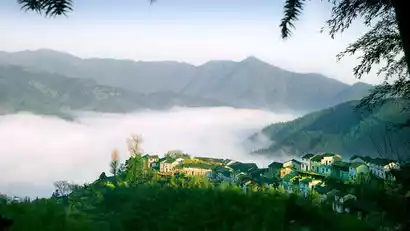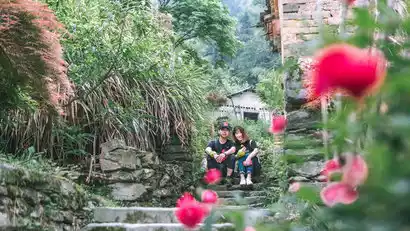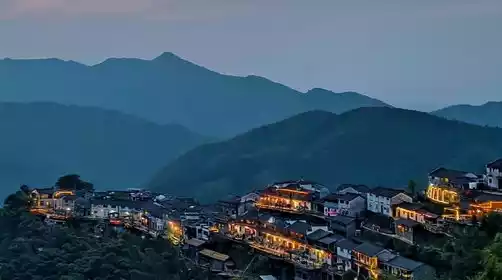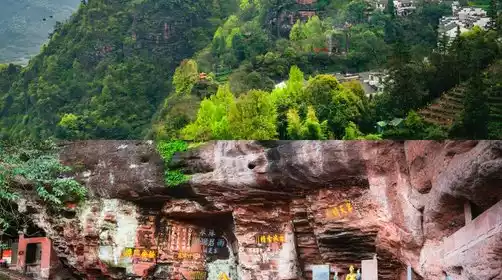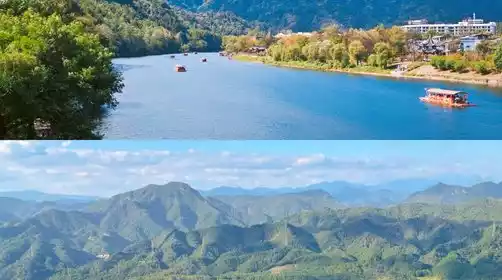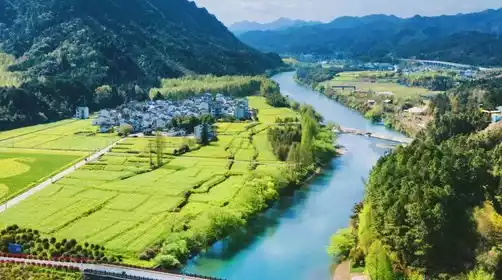Day 1 Shanghai → Tunxi
All day
10:45 Everyone gathered at the designated location of China-TravelNote and signed in.
We set off promptly at 11:00. Along the way, staff briefed us on the activities and team members, and we played interactive games, filling the entire journey with laughter and joy...
We will arrive in Tunxi around 19:00 and have lunch at Tunxi AA. After lunch, we can rest early.
Day 2 Tunxi → Xiuli → Qiyun Mountain
All day
We woke up at 7:30 and headed to Tunxi Old Street. This morning, we had a free breakfast. Tunxi Old Street, known as the "Riverside Scene at Qingming Festival," is one of the best-preserved ancient streets in China, showcasing architectural styles from the Southern Song and Ming and Qing dynasties. Here, you'll find countless delicious delicacies, including Huizhou wontons, Huangshan hairy tofu, and Anhui stinky mandarin fish.
Depart around 9:00 AM for Xiuli Film and Television Village, a newly built village featuring Hui-style architecture. Yi County, known as "the home of a Peach Blossom Spring" and "a village within a Chinese painting," is one of my country's oldest counties, the birthplace of Hui culture and a key gathering place for ancient Hui merchants. Favored by numerous film and television producers and directors both domestically and internationally, Yi County has become a renowned natural filming location, having been the setting for hundreds of renowned films and television series, including "Crouching Tiger, Hidden Dragon," "Ju Dou," "Little Flower," and "Feng Yue." Xiuli County was also the filming location for the film version of "Wulin Wai Zhuan."
Around 12:00, you can find food here freely and look for Huizhou-style delicacies.
Around 13:00, head to Qiyun Mountain
We plan to arrive at the foot of Qiyun Mountain at 2:00 PM. We'll set out as a group, crossing Dengfeng Bridge, crossing the Hengjiang River, and ascending the mountain via the Nine-Li Thirteen Pavilions. We'll pass Wangxian Pavilion, Mengzhen Bridge, and pass through the Yitian Gate, Santian Gate, and finally the Xuantian Taisu Palace. After about two hours, we'll arrive at Yuehua Street, the heart of Qiyun Mountain, and check into our inn. (Tourists who prefer not to climb Qiyun Mountain can take the cable car up the mountain from the base.)
The numerous cliff carvings and Taoist temples make Qiyun Mountain truly an overlooked mountain. In the evening, we perched on the observation deck of the mountain inn, gazing out over the golden fields and the Xin'an River flowing around the mountain. We then chatted, played truth or dare, and more.
Tonight we will spend the night and have dinner in the mountains. We need to bring our own luggage and toiletries to experience the immortals' journey in the mountains.
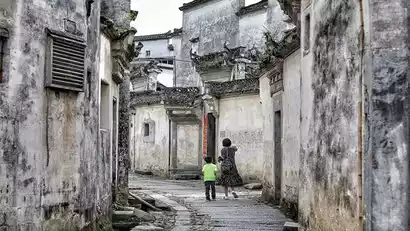
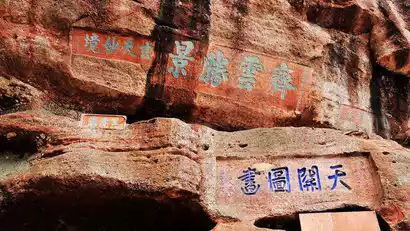
Day 3 Qiyun Mountain → Yunyan Lake → Huaqiao → Muli Cave
All day
We woke up early in the morning to see Xianglu Peak and the sunrise over the sea of clouds. After breakfast, we started hiking around 8:30, from Yuxu Palace to Fangla Village, then to Wulao Peak and Xianren Bridge, and then down the mountain from the other side.
Around 11:00 AM, we headed to Yunyan Lake. We hired one of the few boatmen in the area, who also serve as caretakers of the lake and its forests, and sailed deep into the lake. Following a hidden waterway, we journeyed along a centuries-old path, reaching an isolated island where we saw a massive natural bridge and dozens of cliff carvings left by ancient scholars. It's said that this natural bridge, along with the Rainbow Bridge in the United States and the Natural Bridge in Guizhou, is one of the three largest natural skybridges in the world, yet few people know about it.
12:30 Most of the plank roads along the shore of Yunyan Lake have been abandoned, and the roadbed is not visible because of the weeds. It is said that there are more cliff carvings on the cliffs than in Qiyun Mountain. This is truly a rare secret place.
13:30 The exploration of Yunyan Lake ends, and we enjoy a local farm meal. After the meal, we depart for Mulikeng.
14:30 Arrived at the foot of the mountain of Muli Village. There is no road here, so you need to walk to reach the village.
Arrived at Huaqiao around 16:00 and started hiking to our "secret ancient village" Muli Village - one of the few administrative villages in Huangshan City without access to roads.
Arrive at the village around 5:00 PM, greeted by the last rays of sunlight, and await sunset while marveling at the village's magical beauty. After your assigned rooms and dinner, you can stroll through this rustic village and enjoy the tranquility of Huizhou's night. Here, at night, it's like wandering alone in a fairyland, occasionally looking up to find the moonlight and stars for your companions.
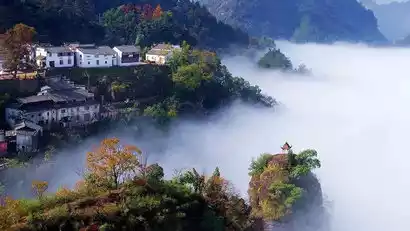
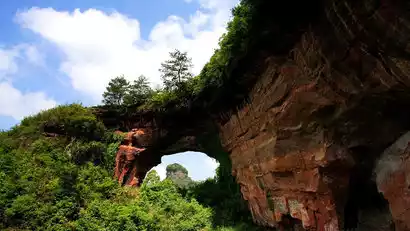
Day 4: Muli Village → Zuyuan Village → Shanghai
All day
Get up around 5:00 am and wait for the first rays of dawn to shine on the ancient village and reflect on the sea of clouds. If you don’t want to get up early, you can sleep in.
Return to the village for breakfast around 7:00.
After breakfast, stroll through the village and experience this ancient village surrounded by cliffs on three sides. The villagers have dedicated themselves to protecting a suspended wooden path built at the door of their houses.
Around 8:00, we chose a 5km long ancient road connecting two ancient villages, which is called the Dream Ancient Road. We walked and took photos along the way. The scenery was pleasant and it was relaxing and not tiring. It took about 2 hours to reach Zuyuan Village, which was built in the Song Dynasty. It has a good ecology, flowing springs and waterfalls, white walls and black tiles, and ancient Hui style. The village has historical and cultural landscapes such as water mouths, ancient bridges, ancient houses, ancient trees, and Sixianling. It is especially famous for its thousand-year-old yew and has more than 100 acres of terraced fields.
Around 11:00, have dinner together in the ancient village
Have lunch around 13:00, take a small car to Xikou Town, and board the bus back to Shanghai
We arrived back in Shanghai around 21:00 and we all said goodbye with tears in our eyes. (This time may be early due to traffic jams during holidays.)
